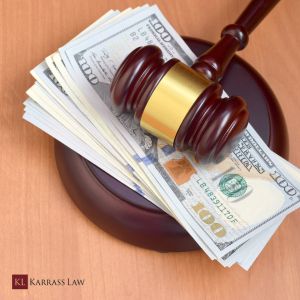What is a Clawback Lawsuit?
Posted on January 30, 2025

A clawback lawsuit is a legal action pursued by civil litigation lawyers to recover money or assets that were improperly transferred or used, often in cases of financial misconduct or fraud. The purpose of a clawback lawsuit is to restore funds to their rightful owners or redistribute them equitably among affected parties. In Ontario, clawback lawsuits are frequently used in cases involving credit card fraud, Ponzi schemes, or mortgage fraud, where victims or creditors seek to reclaim funds lost due to financial fraud. If you’ve been the victim of fraud, a civil litigation lawyer experienced with fraud cases like Robert Karrass at Karrass Law can help you pursue clawback lawsuits and other important legal action to support your best interests, financial health, and justice.
For those facing or initiating a clawback action, understanding the process and the legal principles involved is key to protecting their interests. If you’ve been served with a clawback lawsuit, book a consultation with the expert defence lawyers at Karrass Law. Robert Karrass and our experienced legal team are equipped with skilled fraud lawyers who can help you protect your best interests and advocate for your rights.
Here is what you need to know about clawback lawsuits in Ontario.
Types of Fraud Clawback Action Can Apply
Clawback lawsuits are most often leveraged by civil litigation lawyers when fraudulent activities leave creditors, investors and other victims of fraud with significant financial losses while others and perpetrators of fraud have benefits unfairly.
- Credit Card Fraud: A clawback may target funds or assets obtained through fraudulent credit card transactions, such as unauthorized purchases or transfers made with stolen information.
- Ponzi Schemes: Clawbacks are commonly used in Ponzi scheme cases to recover payouts made to early investors, especially if those payouts were funded by money from later investors.
- Mortgage Fraud: In cases of mortgage fraud, clawbacks may be used to recover funds from parties who received proceeds from inflated appraisals, falsified documents, or other deceptive practices.
A successful clawback lawsuit will help reimburse victims and redistribute funds. If a clawback lawsuit has been wrongfully put forward, it's important that you talk to a skilled civil litigation lawyer and defence lawyer like Robert Karrass to mitigate financial damage.
Defending Against a Clawback Lawsuit
For individuals or businesses named in a clawback lawsuit, there are legal defences that can be used to contest the claims.
In fraud-related cases, defences fraud lawyers leverage often include:
- Good Faith: A common defence is to demonstrate that the recipient had no knowledge of the fraudulent activity and received the funds or assets in good faith. This can be particularly relevant in Ponzi scheme cases, where innocent investors may have unknowingly received payouts from fraudulent operations.
- Fair Value: If the recipient provided goods, services, or other value in exchange for the funds they received, this might serve as a defence against clawback claims.
- Statute of Limitations: Many clawback lawsuits must be filed within specific timeframes. If a claim is brought after the legal deadline, it may be dismissed.
Explore Clawback Lawsuits with Karrass Law
To determine the best course of action for your unique situation, book a lawyer consultation with Karrass Law. Our skilled civil litigation lawyers will examine the details of the lawsuit, the nature of the transactions involved, and the timeline of events to identify potential defences. Proper legal representation is essential to minimizing liability and protecting financial and legal interests. When you need reputable, reliable, and robust legal support, trust the experts at Karrass Law. Our team is experienced with both criminal and civil fraud. We will help you protect your rights, and we will fight for the best outcome possible.
